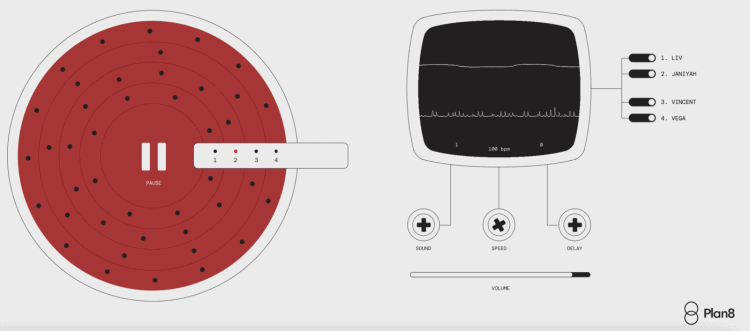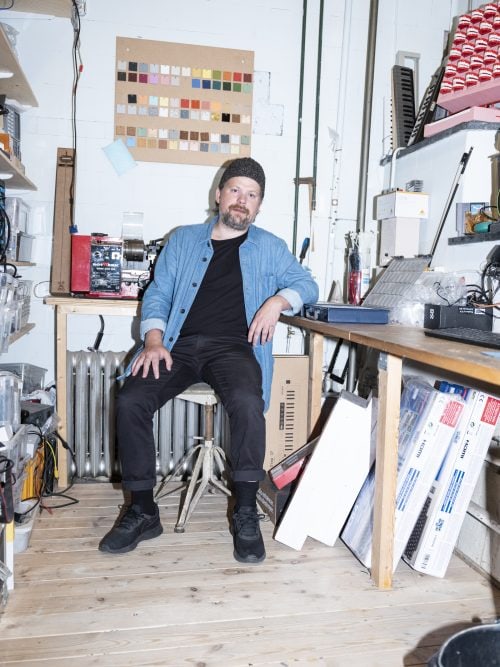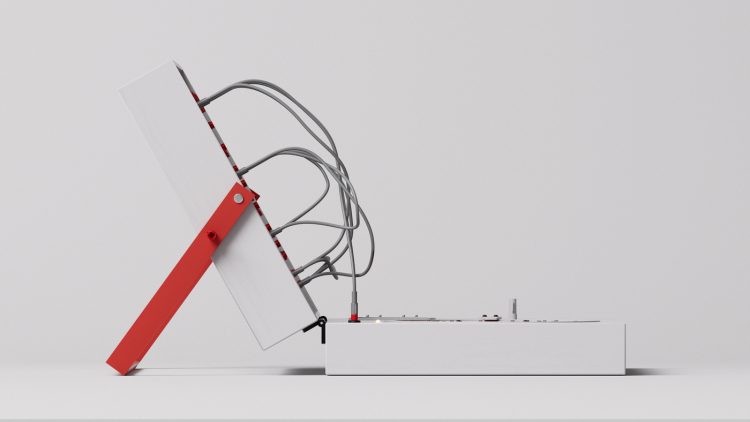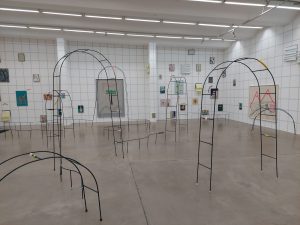CHD-4 designed by the audiovisual artist Love Hultén, together with the Swedish tech company teenage engineering
The auction to raise funds for the Swedish Heartchild Foundation, the non-profit organization that supports children born with congenital heart disease, ended just last month.
The call, which thematically started on Valentine’s Day and ended this 28th of February, has led to the sale of the exclusive piece CHD-4 designed by the audiovisual artist Love Hultén, together with the Swedish tech company teenage engineering.
CHD–4 is a unique art piece producing rhythms based on the heartbeats of four children with congenital heart defects that gathers art, technology and design around a touching purpose. Congenital Heart Disease (CHD) is actually the most common birth defect in the world, counting a frightening number of 1.3 million sick babies born, every year.
Despite that, the issue has low general awareness. To increase knowledge and engagement, they joined forces with the foundation and developed a sequencer made from heartbeats.

The OLED screen traces the irregular pulses visually, as a real ECG machine. The user can choose “tracks” by enabling the four disease channels.
The instrument functions as a modular synthesizer where each ECG has been decoded to a sequencer, enabling the user to play and create with the heartbeats of each child. The patterns can be played together or individually in order to create sounds that exemplify "each child's irregular heartbeat."
The CHD-4 was a joy to build, much due to the whole context and the support from everybody involved. I'm used to customer-focused builds, often working within set frames and client-specific needs. It's always fun to dig into more conceptual ideas”, says the designer largely known as an ingenious craftsman and an audiovisual pioneer of our times.
Together with the technical collaboration of teenage engineering - the company also known for creating high quality, electronic and well-designed (to last) products - they collaborated for the CHD–4 development, by basing its functioning on real electrocardiograms.
The ECGs are printed from actual hospital check-ups, respectively belonging to Liv, Sequence 001, which has been developing third-degree atrioventricular block during mum’s pregnancy, Janiyah, Sequence 002, born with Pulmonary atresia, Vincent, Sequence 003, affected by what is called the univentricular heart disease, and finally Wega, born with a congenital heart disease called ventricular septal defect, VSD.
Each ECG has been decoded into patterns based on its individual shape, pace, and BPM.

The four "hearts" are connected to an array of sound modules designed and manufactured by teenage engineering. This is where the rhythm triggers from the sequencer transform into audio.
“Drum machines are defined by order – beats, pace, and rhythm. This machine disrupts that system, the same way life is disrupted when a child is born with congenital heart disease. Transforming these tiny broken hearts into sound was a truly heartfelt experience. I sincerely hope the machine ends up with someone who will cherish the craft and purpose and that the auction generates a sizable donation to the cause”, says Love Hultén.
The drum machine is available for anyone to play digitally (link here) on their desktop or smartphone, thanks to the emulation support created by the Swedish company Plan8.

The emulator allows users and musicians to experience the feeling of working with the drum machine. The channels take their names from the aforementioned children. The sound can switch from a real heartbeat to cold gained beats. The other two knobs allow the creation of patterns and bases, thanks to the different speeds and to the delay effect.
I'm quite proud of the circular sequencer concept with its ability to offset each "heart" manually in relation to each other”, states the designer. “Each of these 4 "hearts" can be played individually of course, but mixing them together for the "full drum kit" does make rather interesting beats.”
In this regard, Love Hultén is not the only one who thinks this way. A bunch of international musicians, such as Alt-j, Elon Piel, and Linus & Hannes Hasselberg has been using the CHD-4 to produce music during the so-called Heartbeat Sessions, dedicated to the project.

Love Hultén, the audiovisual artist and woodworker. His designs are tailored-made on commissioned requests, ending in custom and often unique pieces.
From a design perspective, the project has been quite challenging, considering the compactness as a constraint and the research of immediacy in the use.
“I struggled a bit in terms of portability. I needed to keep things slim and light enough to have the device fold and unfold correctly. Some trial and error also went into the pin locking mechanism and the carrying handle doubled as back support, but I'm happy about how it all turned out.”
Despite the unique piece available, the project addresses a multitude. Design once again manages to tell a story, to rise as a symbol of innovation and to better life of people all around the world, crossing all ages.
INFO:
For more information please visit www.heartbeatdrummachine.com
To donate: Swedish Heartchild Foundation
Pictures: Courtesy of Love Hultén

 日本語
日本語 English
English



